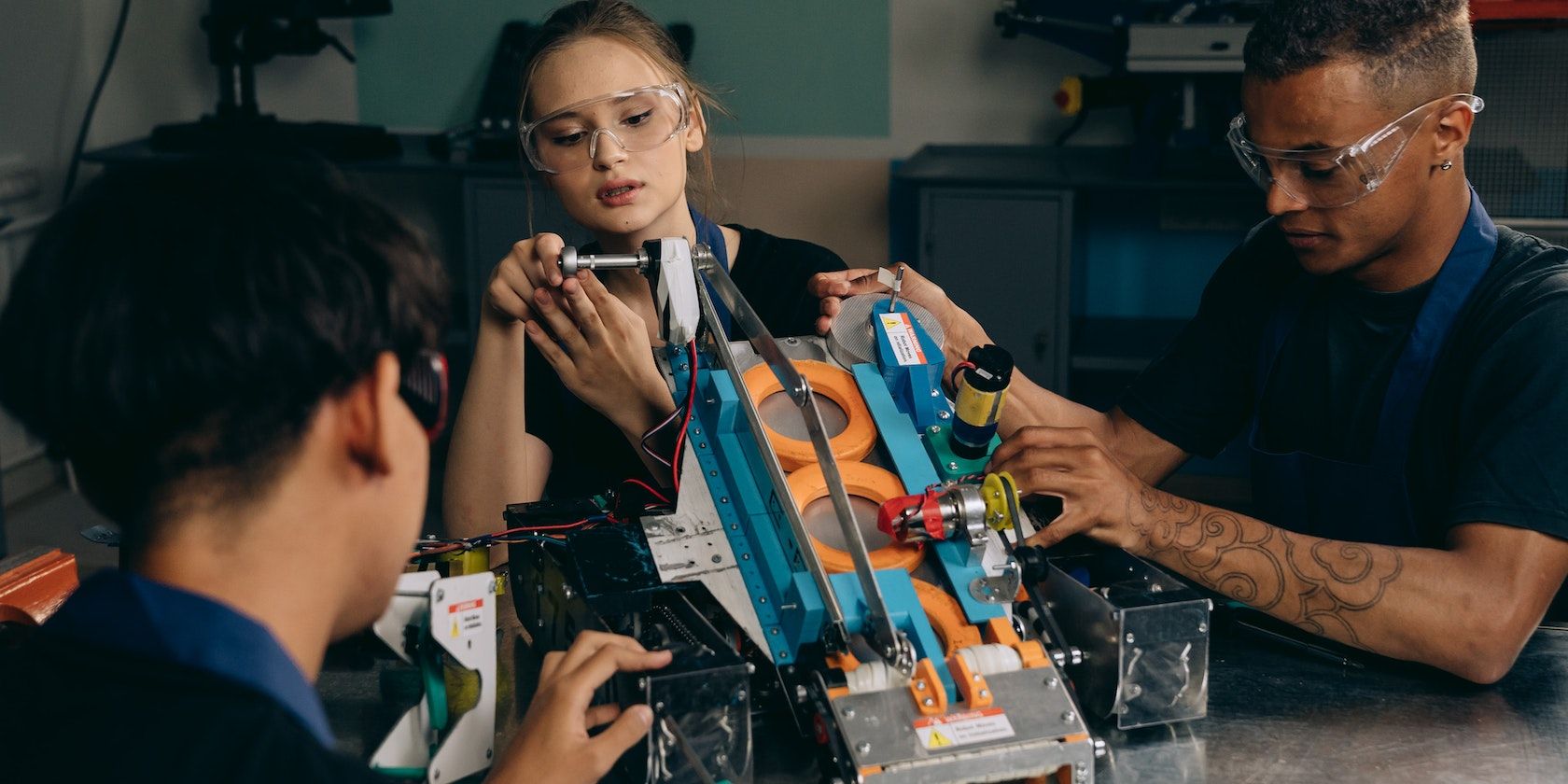When you hear the word “robotics,” two things may come to mind. One, a robotic army assembled to hold the earth under siege—thanks to the media—or exceptionally smart machines that make work easier and faster. However, only the latter makes sense, as robotics remains an evolving worldwide concept.
Robotics is a huge part of major industries that provide mining, automotive, and manufacturing services. Thus, robotics engineers’ expertise is required to build machines that are useful in these industries. This article will extensively discuss robotics engineering and the important steps to becoming one.
What Is Robotics Engineering?
Robotics engineering is a concept that combines science, engineering, and technology. This branch of engineering deals with the creation of robots and their application in modern industries. Robots are programmable machines that mimic human actions and can handle simple or complex tasks like performing complicated surgeries.
Robotics engineering covers two scopes, which are building software and mechanical hardware. Individuals with a flair for coding can opt for the software aspect of robotics engineering. In contrast, others with mechanical backgrounds can choose to assemble robots physically.
Robotics requires deep knowledge of math, electronics, and computer science. In addition, having basic knowledge of a programming language(s) gives you an advantage. Also, robotics engineering bridges basic engineering concepts like artificial intelligence, algorithms, and machine learning to create incredibly smart machines.
The most significant part of robotics engineering is its role in creating better alternatives to human labor. You’ll find some of its inventions in nuclear science and designing bio-medical equipment. It’s also part of some of the key technologies used in the manufacturing industry.
What Does a Robotics Engineer Do?
The major role of a robotics engineer is to design and build robots. They also assemble and plan each process needed to get them working effectively. So, beyond assembling parts of a robot, they perform tests to ensure all mechanical hardware, electronic, and software programming in the robot are working simultaneously and in the right order.
A robotics engineer is responsible for determining the robot’s use and functionalities. They design software and robotic systems to help improve large industries’ production processes. For example, the creation of exoskeletons and how they work to ease human labor.
During the assembling stage, these engineers are tasked with attaching end-to-end assembling units to create a working robot. This part is where your invention comes to life. For the complex part, a robotics engineer analyzes prototypes created in the past and finds ways to improve them.
They also estimate the cost and safety of producing these machines by comparing their perceived value. However, one of the most important roles of being a robotic engineer is the ability to do extensive research into the design and mode of operation of the robots you intend to create. According to ZipRecruiter, the average annual salary of a robotics engineer is $90,906/year.
How to Become a Robotics Engineer
To become a top-rated robotics engineer, you’ll need to be trained in important courses and skills. Consider following these steps to become a robotics engineer:
1. Complete a Relevant Bachelor’s Degree in Any Robotics-Related Discipline
The first step to becoming a robotics engineer is completing relevant courses and degrees in this field. These courses are usually an even distribution of math, computer science, and engineering. Earning a Bachelor’s Degree in Robotics (B.Eng) is a good start, and you can also choose to take a major in artificial intelligence.
Studying the basics of computer science also prepares you for the software and coding aspects of robotics. It helps you familiarize yourself with machine learning and other advanced concepts in computer science, while engineering equips you with knowledge of mechanical hardware. During your course of study, you can choose a major and then get a master’s degree.
You’ll also need training on Scripting tools, Automation, and the Internet of Robotic Things (IoRT). Depending on your career aspirations, you can choose to add an associate degree in these disciplines.
2. Earn Certifications and Take Online Courses
In addition to getting a degree, earning a certificate by taking online courses further prepares you for a career in robotics and authenticates your position as one. Thanks to the internet, there are self-learning options online that can help you with more knowledge in robotics. A few reputable online learning platforms to learn robotics are Coursera, edX, and Futurelearn.
Depending on what areas you pick interest in, taking some free online coding courses would usher you into a great start. It would help if you were well-versed in material science and design skills.
In addition to the knowledge you’ll gain from these courses, they also give you a competitive advantage in the job market. Here are some of the best online courses to begin your robotics career:
- Robotics Specialization - University of Pennsylvania
- Robotics Foundation I - Robot Modeling - FedericaX
- Modern Robotics: Mechanics, Planning, and Control Specialization - Northwestern University
3. Acquire Relevant Skills Required for Robotics Engineering
You’ll also need creative thinking, problem-solving, and basic programming skills. They help you do well as part of a team, and you can add teamwork and active learning.
You can acquire these skills by self-study and test your proficiency in them by pursuing personal robotics projects. With time, you should learn to create estimates for projects and develop great communication skills. Aside from being a bonus when you apply for jobs, these skills will make you an asset to the team.
4. Join a Professional Association
Joining an association helps you to network with other professionals in your field, including seasoned and aspiring robotics engineers. This association could give you an edge during a job search and help you gain more knowledge in your field by conversing with like minds.
Some top robotics associations are the Association for the Advancement of Artificial intelligence (AAAT), IEEE Robotics and Automation Society, and the Association for Unmanned Vehicle Systems International. These associations serve as reputable professional networks for experts and new robotics engineers.
5. Seek Internship and Placement Opportunities
Applying for internships and placement opportunities allows you to get hands-on experience as a newbie in robotics. This way, you’ll have practical knowledge of how this field works in a corporate environment. You’ll also get to apply all you have learned through degrees and periods of self-study.
Some companies offer these internships. However, you can start by searching through the best websites to find internships online and onsite. The trick to getting these roles is to be intentional. Although it’s an internship, you’ll need to study the company, including its values, history, and inventions, which could be a booster during interviews.
Launch a Successful Career as a Robotics Engineer
Robotics engineering is an evolving career. So as you grow, you need to meet the demands of the field, which would help during your quest for the perfect job. A career in robotics would require you to carefully weigh your options, and if you’re considering a switch from a different career, it is necessary to learn all you need to launch a successful career in a new industry.




